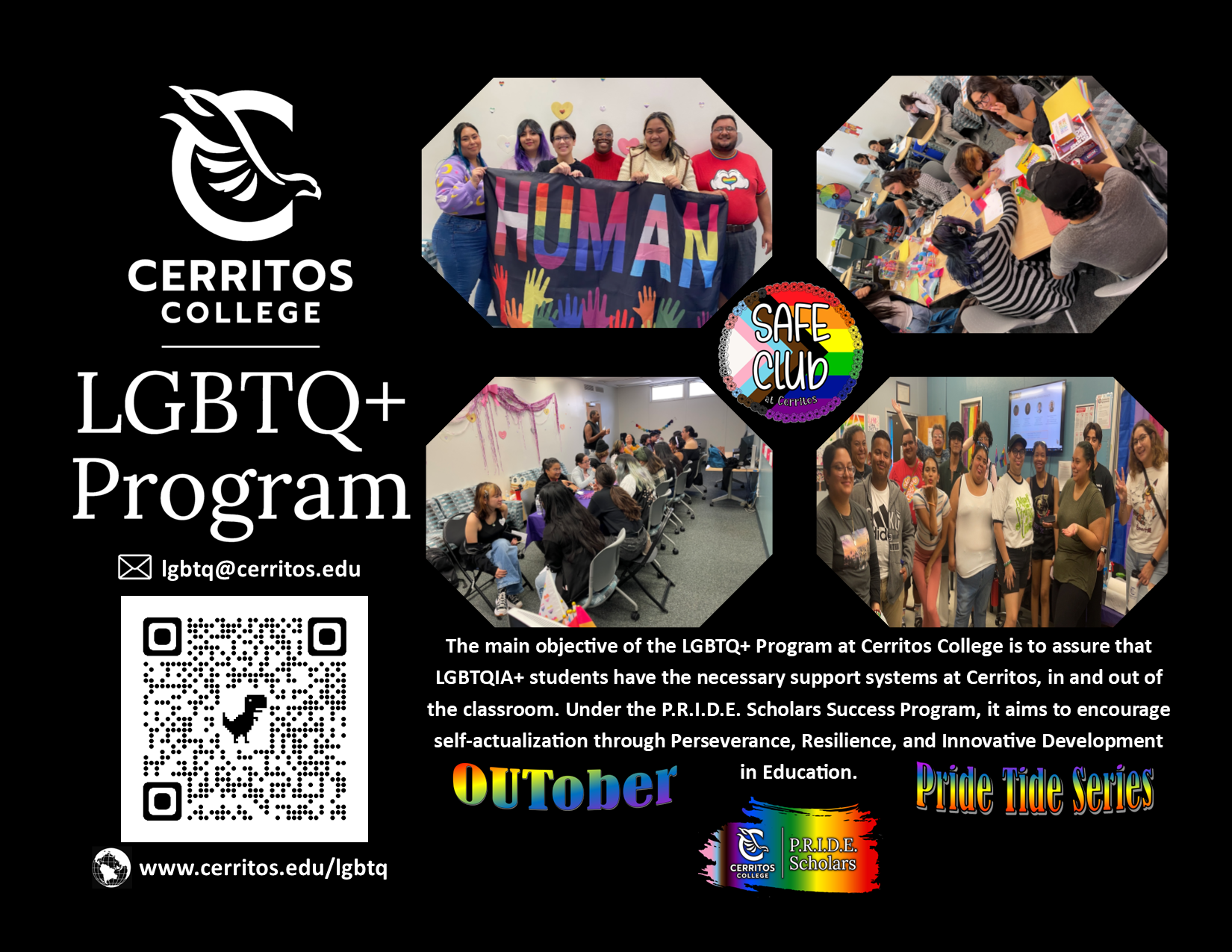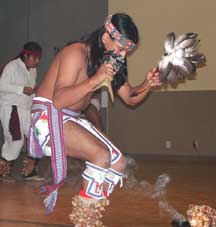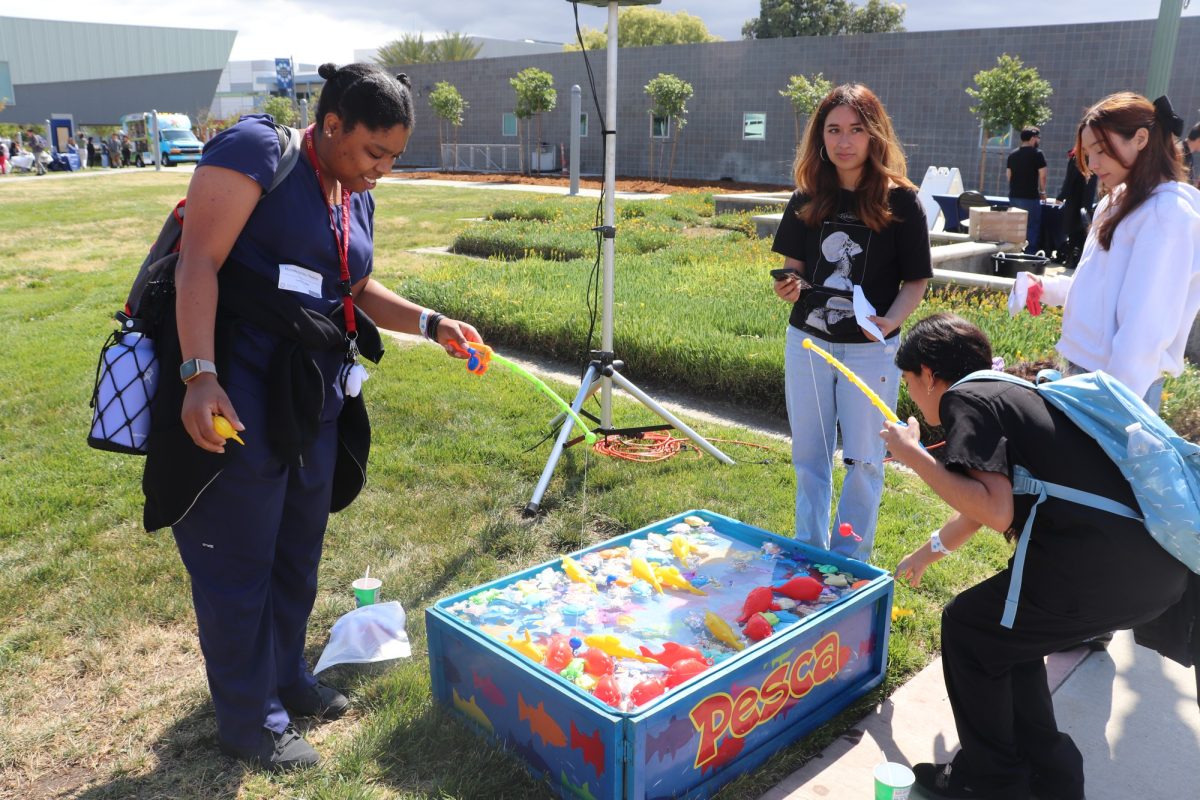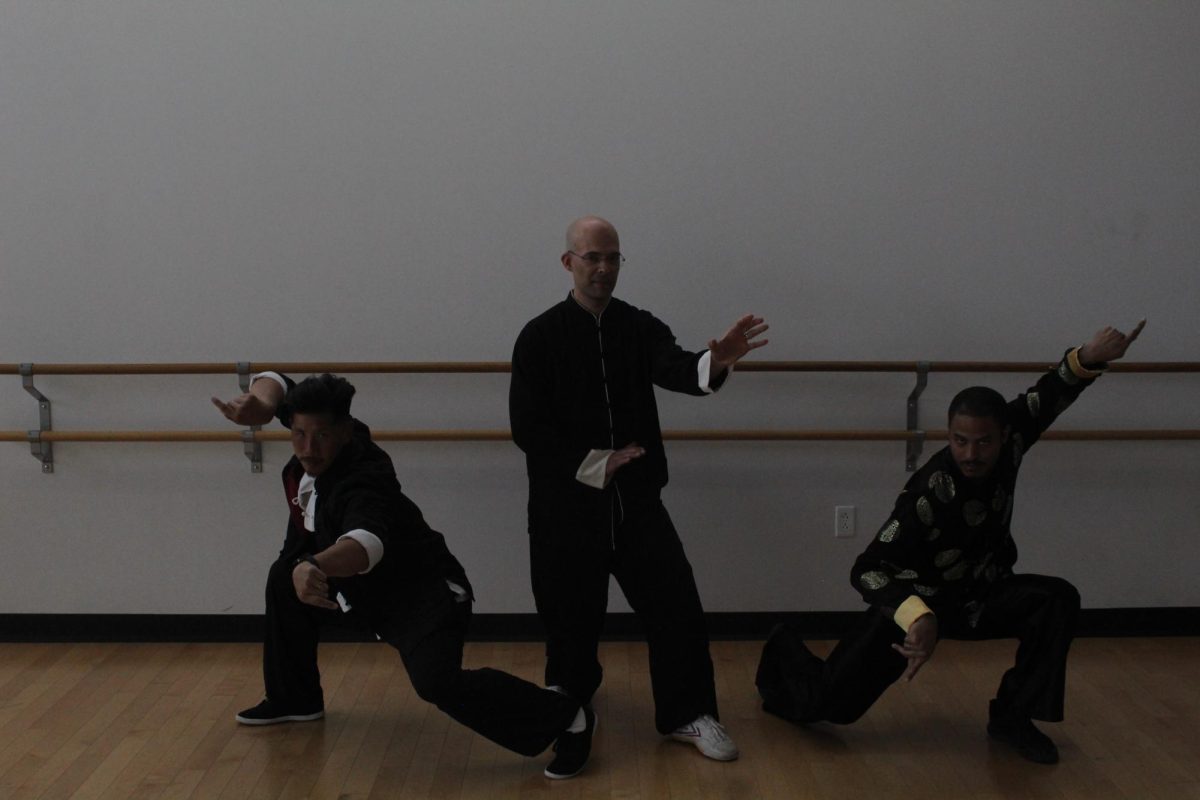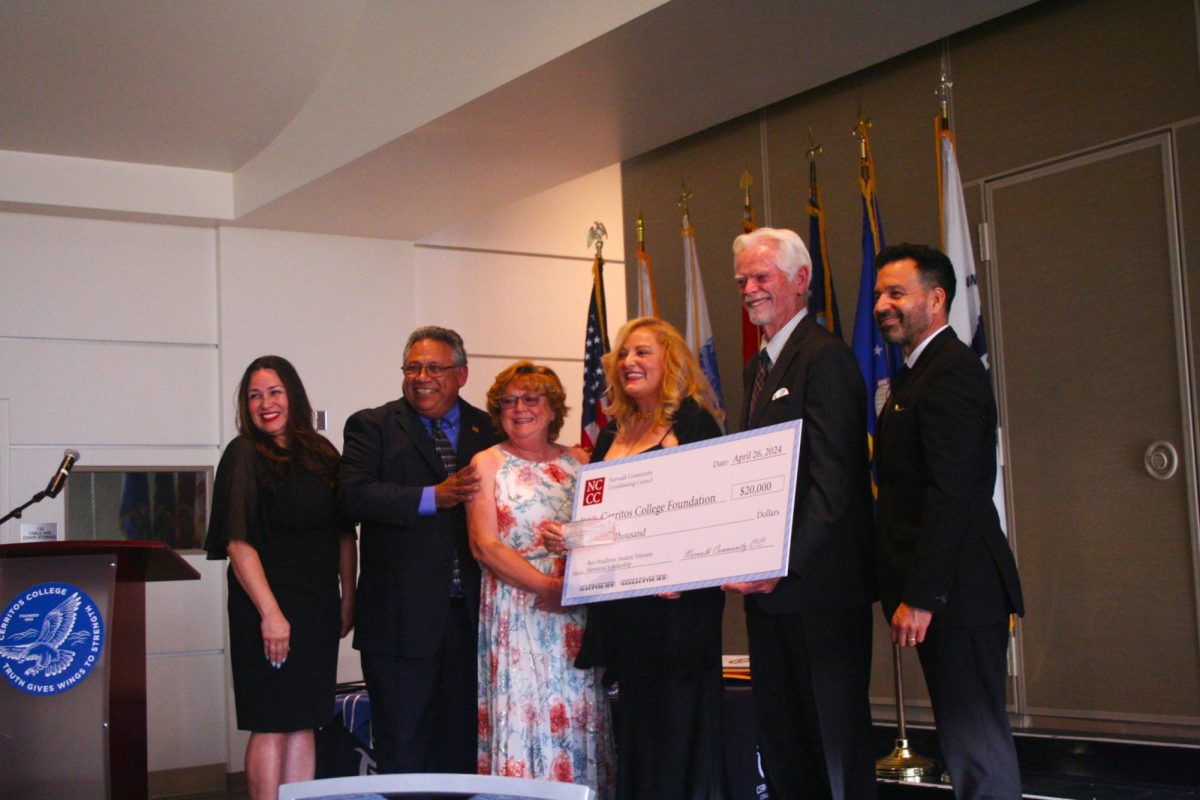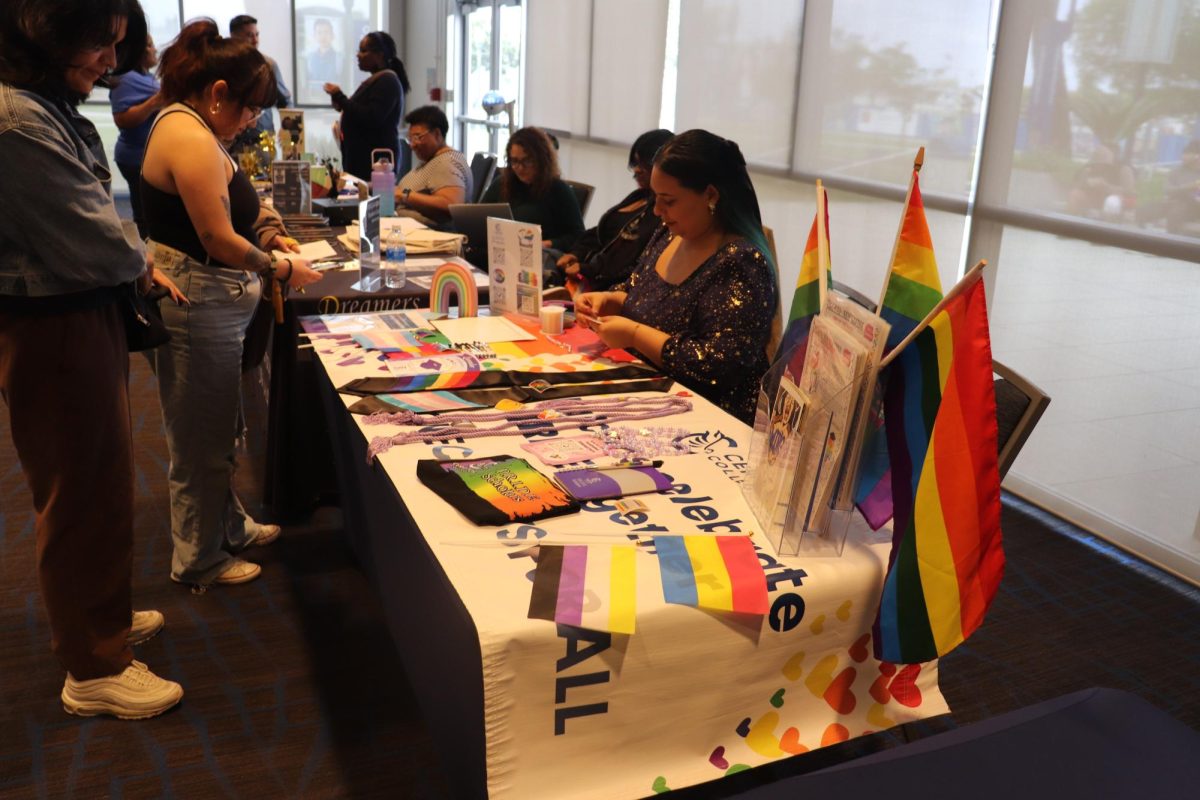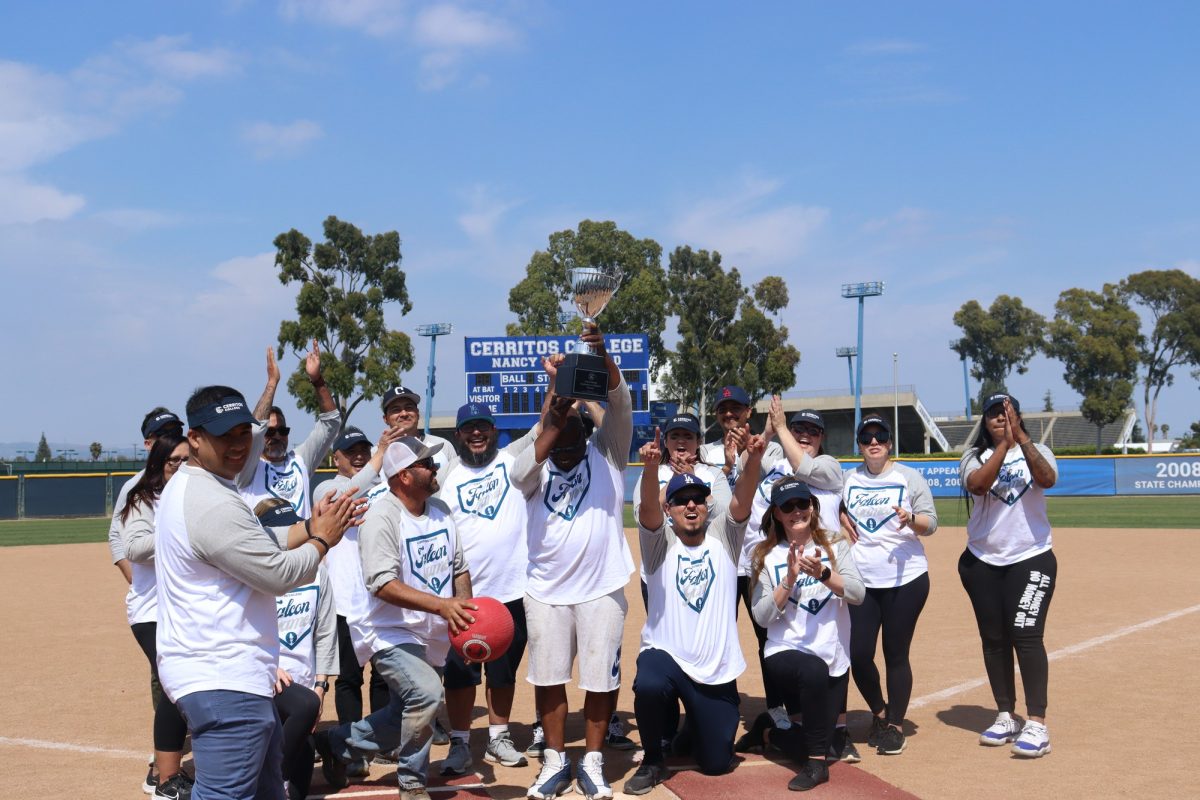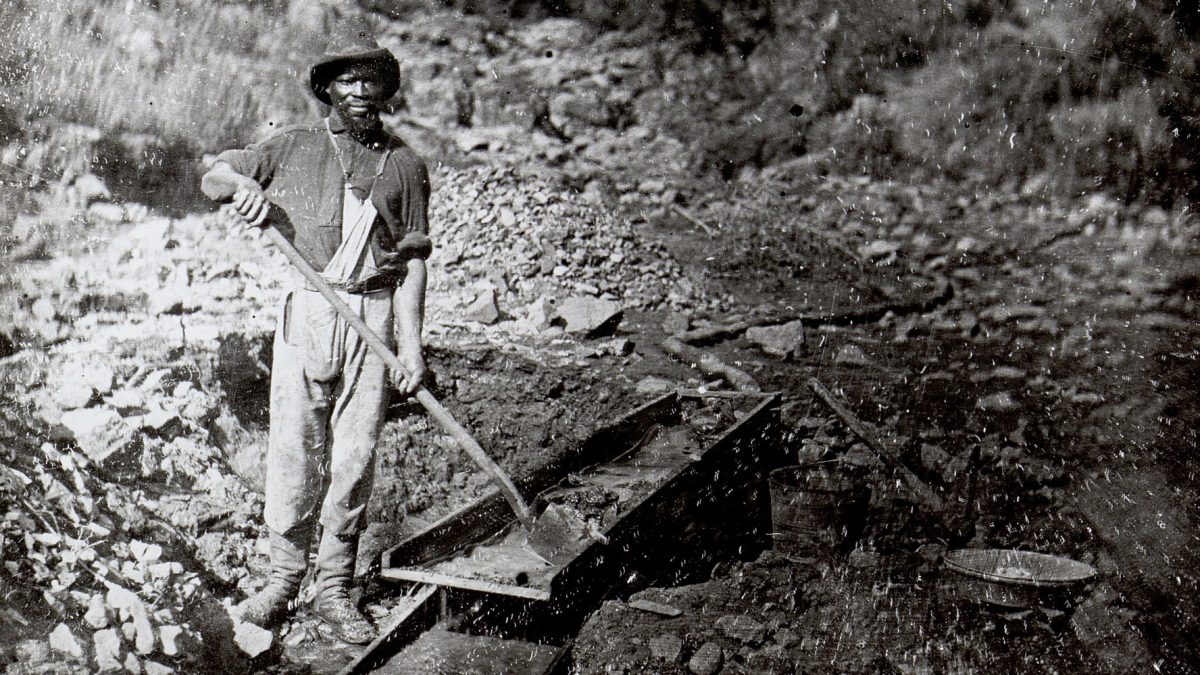Rafael Sandoval never thought about getting an education until he was in his 30s. Up until that point, he had lived the life of a hardened East L.A. gang member, who eventually found himself where he says everybody who lives that lifestyle winds up, in correctional facilities.
Thursday night, Sandoval, along with a slew of other speakers hoping to impress upon Cerritos College students the importance of education, spoke in the Student Center during MEChA’s El Dia de los Muertos, or The Day of the Dead celebration.
Dia De Los Muertos is a traditional Mexican holiday in which people honor the dead.
It is celebrated around the same time of the year Halloween is celebrated, however, this holiday is not a scary one.
According to MEChA club member and treasurer, Nancy Garcia, families that celebrate this holiday set up altars adorned with deceased family member’s favorite foods and drinks. Also placed on the altar are flowers, candles, breads, candies and pictures of the deceased.
It is hoped that the inviting objects will entice the spirit of the deceased family members to return home for the evening.
A makeshift altar was set up on the Student Center stage, and there were performances by several groups that helped convey the joyous spirit of the holiday.
The majority of the evening, however, was devoted to getting the message across to students that education is very important, and no matter what obstacles they may encounter, they need to get their education.
Sandoval, now in his 50s, speaking in a slow, calm voice recounted the day his life changed.
He says a speaker was scheduled to come to the facility where he was being held to give a talk to the inmates about making changes in their lives and becoming productive citizens in society.
“When the speaker came to the facility I was out in the yard playing handball, I didn’t want to go listen to no speaker,” Sandoval recalled.
He eventually was talked into going by a couple of guys who told him that free food was going to be served.
The speaker turned out to be a childhood friend of Sandoval’s, Richard Allatore, who eventually went on to become a Los Angeles city councilman.
Sandoval says, Allatore immediately recognized him and went up to him and eventually convinced him to get his G.E.D., which is the equivalent of a high school diploma.
Only minimally motivated at first, Sandoval did just enough to prepare for the test, but he did pass it.
Soon thereafter, he was put in touch with people who he says had a genuine interest in seeing him succeed, and convinced him that education was the road to success.
In his early 30s, Sandoval found himself attending Cal State University Long Beach, joining an honor society, and eventually getting that education that only a few years earlier, he had no thoughts of obtaining.
Toward the end of his talk, Sandoval said, “If my being here tonight can make a difference in just one person’s life, then it was worth it.”
Those sentiments were the theme of the approximately four-hour-long-program MEChA staged: opening Cerritos student’s eyes to the opportunities education can afford them, letting them see first hand, people who have overcome tough obstacles to get their education, and presenting it by Hispanic people so that Hispanic students could see that people who come from where they come from, and who are the same color as they are have already accomplished what they are trying to accomplish.
MEChA stands for Movimiento Estudiantil Chicano/Chicana de Aztlan, or the Chicano/Chicana student movement of Aztlan.
Its purpose is to help Chicano students develop an awareness of their culture, their history, and to use education as a vehicle to better not only themselves, but also their people.
To better help students see the importance of getting their education, Julia Juarez, who came on behalf of the Hispanic Scholarship Fund’s Los Angeles division office, actually gave statistics.
She said that “only nine percent of Latinos in the United States gets a college degree,” but that on average, a person in the U.S. who does not obtain a college degree will earn 45 – 90 percent less money than someone who does.
Juarez used the latter statistic to make a point that really hit home with a lot of people in the audience. She talked about how many students do not complete their educations because they feel it is more important for them to go to work to help their families rather than go to school. Well, according to her statistics, by not getting an education, this person will make much less money over the course of their lifetime.
Juarez says, by getting a degree, in the long run you’re not only helping yourself, but you’re also helping everyone else out as well.
Juarez also used that statistic to try to change student’s ways of thinking who do not want to go into debt by taking out student loan.
She pointed out that she still owes money on student loans, but that at the same time, she is living a lifestyle that she never could have afforded without an education.
She said, “If you have to get student loans, it could be the most important thing you do for yourself.”
Some of the other speakers at the event were Hector de la Torre, who works at the Bellflower Superior Court, and who is running for U.S. Congress. He talked about the importance of giving back to your community once you have become successful.
Cynthia Romero, a current student at UC Riverside, talked about the obstacles she has had to face to get an education because she is not yet a full United States citizen, even though she immigrated from Argentina when she was seven years old.
Ken Menchaca, of the gang prevention program talked about escaping the grip of the gang lifestyle to educate himself, and how “if [he] could do it, anyone could.”
To open the event, a traditional Aztec dance group called Danza Azteca Cuauhtemoc performed, and in between dances, gave a brief oral history of the Aztec culture.
Near the end of the event, the Cerritos College Salsa Club took the stage and performed.
And right in the middle of the event, Nancy Garcia of MEChA gave an intense, captivating poetry reading.
As the event ended, and the audience exited the building, a row of customized low riders, compliments of the Latinos Car Club, was parked in the Falcon Square for them to view, along with other Cerritos students who were getting out of their evening classes.
On the Dia de los Muertos celebration, president of MEChA, Joaquin Navarro said, “I brought people from different avenues, people that work with government, law agencies, and also people that work at the core of the barrio with gangs.”
He said he brought the Latinos Car Club out to, “demonstrate cultura, arte, and the custom of the barrio and the diversity within it.”
Sylvia Duran contributed to this article.
————————————————————————

